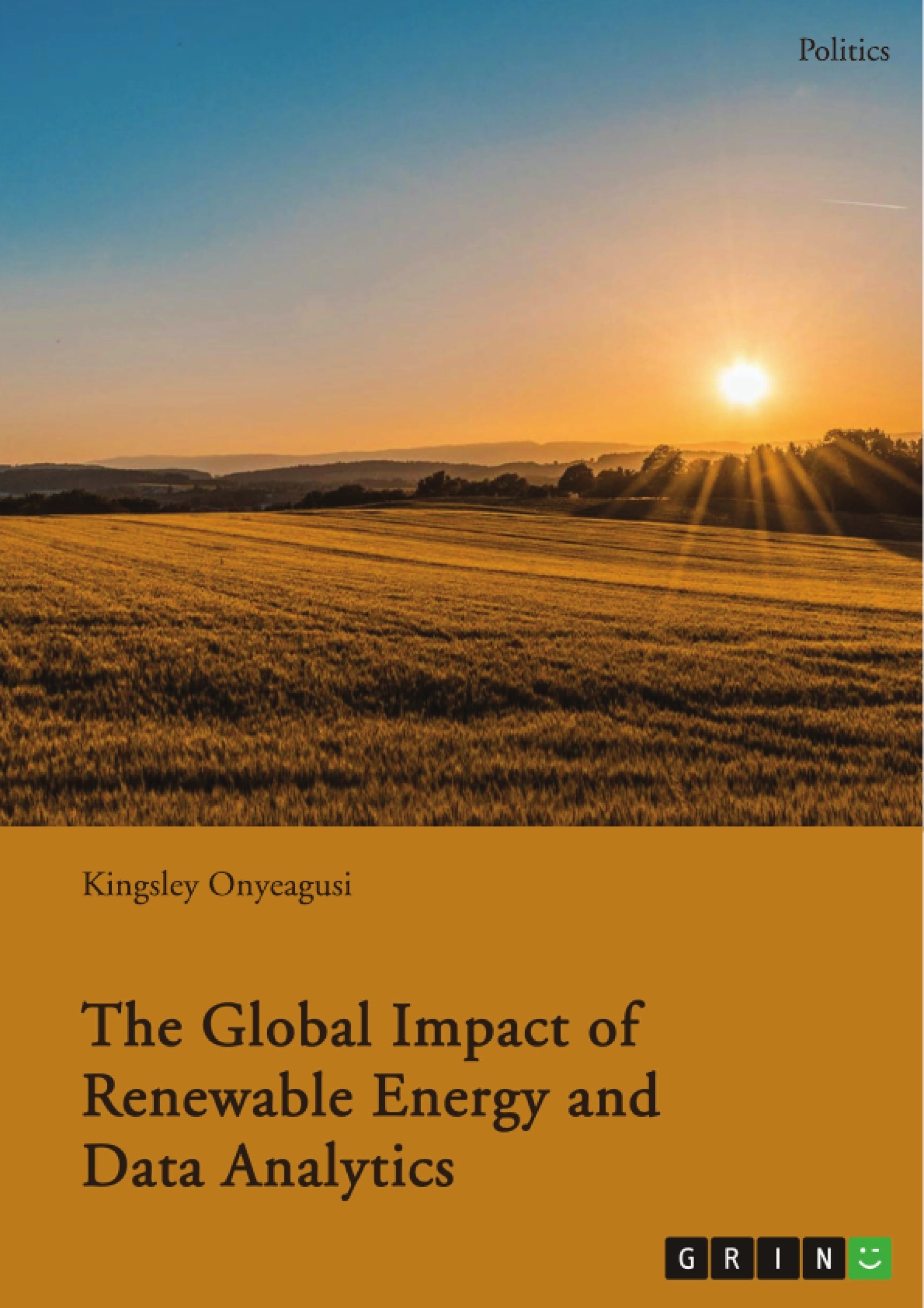This article explores the critical role of renewable energy and intelligence systems in developing countries seeking to expand energy access and for developed nations working to decarbonise energy systems. The opportunities, challenges, and impacts of the renewable's revolution vary between poor nations with limited existing infrastructure and rich countries possessing advanced technical capabilities. However, data-driven solutions are invaluable in maximising clean energy potential everywhere while managing variability.
By comparing and contrasting the nuances of integrating high shares of solar, wind, and other renewables onto grids in Asia, Africa, the Americas, and Europe, insights and best practices can be shared across borders. Artificial intelligence and machine learning are unlocking the promise of renewable energy worldwide through sophisticated forecasting of supply and demand, optimal location of projects, predictive maintenance of assets, and real-time management of complex systems. However, technology gaps and a lack of technical expertise hamper many developing nations. Targeted financing, capacity building, and knowledge transfer are critical to empowering these regions to benefit from data and renewables in providing affordable, reliable, and sustainable energy access.
This article highlights significant trends, analyses case studies of success, and synthesises expert perspectives across the developed and developing world. By documenting the global impacts of renewables and analytics, stakeholders ranging from policymakers to investors can make informed decisions that steer all nations towards a decarbonised energy future that leaves no one behind. The insights can help guide an inclusive and just transition worldwide.
Table of Contents
- Introduction
- Global growth of renewable energy and the role of data analytics
- Critical points on renewable energy solutions
- The Global Impact of Renewables in Developing and Developed Economy
- Impact of Cleantech on Renewable Energy Solutions in Developing and Developed Countries
- Barriers hindering developing nations from accessing renewable energy solutions
Objectives and Key Themes
This article explores the crucial role of renewable energy and data analytics in achieving global energy transition, emphasizing the need for sustainable electrification and decarbonisation. It highlights the variations in the opportunities and challenges of integrating renewables in developing and developed countries, examining the impact of data-driven solutions in optimizing clean energy potential.
- Global transition to renewable energy
- Role of data analytics in optimizing renewable energy adoption
- Impact of renewables in developing and developed economies
- Cleantech innovations and their influence on renewable energy advancements
- Barriers hindering renewable energy access in developing countries
Chapter Summaries
- Introduction: This chapter sets the stage by introducing the growing global demand for renewable energy, highlighting the importance of data analytics in accelerating this transition. It underscores the need for sustainable energy systems that address both climate change and energy access challenges.
- Global growth of renewable energy and the role of data analytics: This chapter examines the rapid rise of renewable energy globally, driven by falling technology costs, government incentives, and the urgency of climate change mitigation. It explores the role of data analytics in optimizing renewable energy integration, forecasting generation levels, and managing variability.
- Critical points on renewable energy solutions: This chapter outlines the key benefits of renewable energy, emphasizing its clean, sustainable nature and economic viability. It discusses the importance of overcoming challenges like intermittency and technological gaps through solutions like energy storage, demand management, and grid modernization.
- The Global Impact of Renewables in Developing and Developed Economy: This chapter compares and contrasts the impact of renewable energy on developing and developed economies. In developing nations, renewables are essential for expanding energy access and improving socioeconomic conditions, while in developed economies, the focus is on decarbonizing existing energy systems.
- Impact of Cleantech on Renewable Energy Solutions in Developing and Developed Countries: This chapter explores the transformative impact of cleantech innovations on renewable energy adoption in both developing and developed countries. It highlights how cleantech advancements are making renewable energy technologies more affordable, accessible, and efficient, while also enabling smarter grid management and innovative business models.
Keywords
The core themes of this article include renewable energy, data analytics, cleantech, sustainable energy, global energy transition, developing economies, developed economies, energy access, decarbonization, climate change, and grid modernization. It explores the intersection of these concepts, emphasizing the role of data-driven solutions in optimizing renewable energy deployment and fostering a more equitable and sustainable energy future.
- Quote paper
- Kingsley Onyeagusi (Author), 2023, The Global Impact of Renewable Energy and Data Analytics, Munich, GRIN Verlag, https://www.hausarbeiten.de/document/1436718


